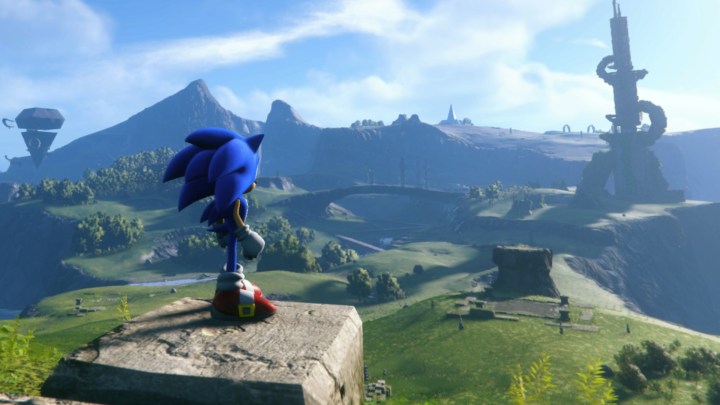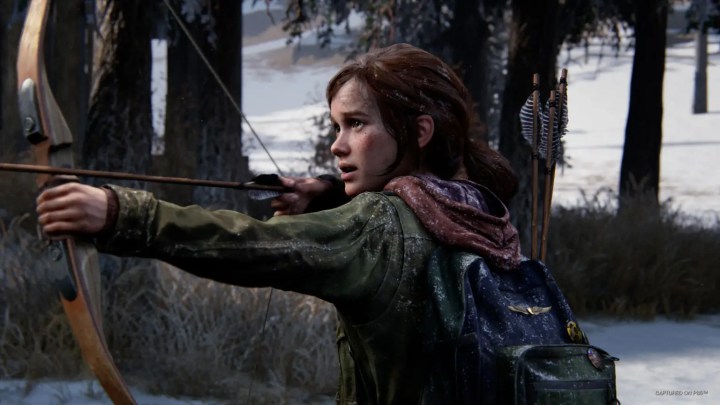Geoff Keighley had an unenviable job this year. When E3 2022 was fully cancelled, players began looking to the gaming personality’s Summer Game Fest event to fill the gap. The show has grown in recent years, bringing more high-profile announcements during its annual kickoff stream. Considering that last year’s show featured a new trailer for Elden Ring, one which revealed the game’s release date, expectations were understandably high.
It’s safe to say that this year’s show couldn’t fully capitalize on the hype. The tw- hour broadcast featured plenty of new footage for big games like Call of Duty: Modern Warfare II, but it wasn’t filled with the kind of killer apps that make E3 a watercooler moment (its grand finale, The Last of Us Part I, was leaked hours before the event).
Despite being a painstakingly crafted labor of love, this year’s stream wasn’t the E3 replacement most players were hoping for. Instead, it seemed to signal that gaming companies may not be looking for an E3 replacement at all, even if fans are.
Lack of variety hour
Today’s kickoff stream started well enough with a new Street Fighter 6 trailer, an unannounced Aliens title, and a deep dive into The Callisto Protocol. The initial flurry of big reveals quickly slowed down as the stream focused on previously announced titles and new projects from smaller studios. It never really picked back up though, as ads for things like Nerdwallet padded out the show. The Rock even showed up, but mostly to plug an energy drink in the show’s lowest moment.
It didn’t help that this year’s show wasn’t quite curated with variety in mind. It was heavy on shooters, particularly those set in outer space — so many that Keighley even joked about it between reveals. Games like The Callisto Protocol, Fort Solis, and Routine were all sci-fi thrillers that dominated the show’s first half. That’s before getting into games like Warframe and Outriders: Worldslayer, which kept the theme going.

If anything, the show may have unintentionally backfired for the video game industry. If you’re not someone who pays attention to games and still see the industry as obsessed with violence, seeing someone’s head ripped in half wasn’t going to change your mind. Guns dominated the show, with very few games passing the screen without a moment of muzzle fire.
Naturally, the Summer Game Fest kickoff isn’t the only stream the event hosts. The Day of the Devs showcase that aired immediately after was a much more diverse experience showing how much independent development is pushing the industry forward. But the kickoff is the main event, and it was one that seemed most interested in catering to Call of Duty fans.
Industry no-shows
Prior to the show, Keighley went on a marketing tour hyping up the showcase. He shared a list of studios involved in the broadcast, featuring just about every major company you could imagine. He teased the stream with a flashy hype video too, which featured clips of high-profile games that ultimately wouldn’t be part of the show at all (Sonic Frontiers was a notable no-show).

Keighley wasn’t lying. Indeed, just about every name in gaming showed up with something — it’s just that what they showed wasn’t their A material. Sega came by to plug new content for Mankind, Capcom shared a character reveal trailer for Street Fighter 6 (after the entire roster leaked), and Nintendo showed preexisting TV spots for its upcoming titles.
The tension between studios wanting to play ball with Summer Game Fest while saving their biggest reveals was especially apparent in Square Enix’s presence. Just last week, the company went all out for Sony’s State of Play stream, revealing new footage for Final Fantasy XVI. It stopped by for Summer Game Fest too, but only to show a new trailer for Outriders‘ upcoming DLC — not exactly on the same level. Much of the show felt like PR companies fighting to get their mid-tier projects into a prime-time slot. And with a two-hour runtime, Keighley seemed happy to approve any and all requests.
None of this would have been a problem had it not been for the way the show was marketed. In a Twitter Spaces talk, Keighley spoke about how he was looking to reach the highs of E3 this year. “There were a lot of shows last year where everyone was disappointed when they weren’t really press conferences, right? Like Take-Two, Capcom, Square Enix and things like that,” Keighley said. “You kind of need to have 30 minutes-plus of stuff, and sometimes they only have one or two great games to show, which may not be enough to do a full event around. So I think that’s going to be a bit of a shift. I have a pretty good sense of what’s coming in the next month, and I think people will be hyped about games in general.”
Keighley would later backtrack a bit closer to the event, telling players to keep their expectations in check. He implied that the show would mostly focus on previously announced titles (which was true), though he would double back shortly after, reminding disappointed fans that 2021’s stream featured Elden Ring. Nothing would really reach the same heights this time around, save for the somewhat polarizing The Last of Us Part I (even then, it’s telling that Sony didn’t roll out the red carpet for God of War Ragnarok here).

The show ended with the promise that Summer Game Fest will return in 2023 with an in-person component — putting it in direct competition with E3’s planned show — but the kickoff left me feeling like both shows were competing for something that fans desire more than game publishers. Studios like Capcom and Square Enix don’t really seem interested in handing over their games to third-parties that aren’t platform holders. Instead, they seem more eager to work with companies like Sony. Just look at the recent State of Play, which featured a Resident Evil 4 remake, Street Fighter 6, and Final Fantasy XVI. Since E3’s slow demise began, studios have realized that they can reveal their biggest products whenever they want as opposed to spending big bucks to have a presence on a show they don’t have influence over.
I enjoy Summer Game Fest and I hope it sticks around. It’s always fun to see new games and chat with friends about exciting reveals. But it feels like the E3-sized hole in our hearts isn’t being filled anytime soon, even if the show does. Perhaps shows like Summer Game Fest are better off as a discovery platform for smaller projects rather than a stage for AAA table scraps.



